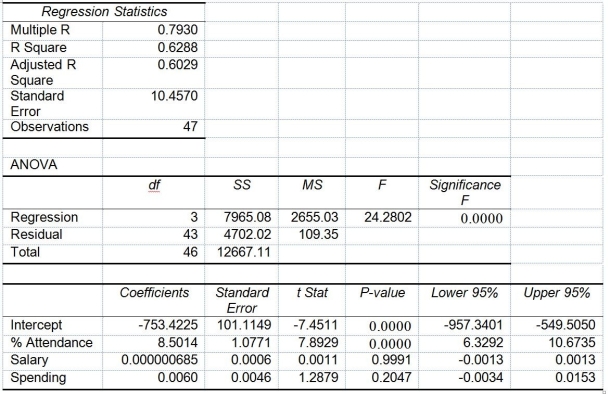TABLE 14-15
The superintendent of a school district wanted to predict the percentage of students passing a sixth-grade proficiency test. She obtained the data on percentage of students passing the proficiency test (% Passing) , daily mean of the percentage of students attending class (% Attendance) , mean teacher salary in dollars (Salaries) , and instructional spending per pupil in dollars (Spending) of 47 schools in the state.
Following is the multiple regression output with Y = % Passing as the dependent variable, X₁ = % Attendance, X₂= Salaries and X₃= Spending:

-Referring to Table 14-15, which of the following is the correct alternative hypothesis to test whether daily mean of the percentage of students attending class has any effect on percentage of students passing the proficiency test, taking into account the effect of all the other independent variables?
Definitions:
Sampling
A statistical method of selecting a subset of individuals or observations from a larger population to make inferences about the whole population.
Observation
The action or process of closely monitoring or watching something or someone carefully or in order to gain information.
Overgeneralization
The cognitive bias of applying a rule or conclusion too broadly across situations that don't necessarily fit.
Generalization
refers to the process of formulating broad statements or conclusions that apply to multiple instances from specific observations or limited examples.
Q7: A model that can be used to
Q9: Referring to Table 14-13,the predicted demand in
Q9: Referring to Table 16-4,a centered 5-year moving
Q82: Referring to Table 16-4,exponentially smooth the wine
Q108: Referring to Table 13-7,to test whether the
Q118: Referring to Table 13-3,the director of cooperative
Q130: Referring to Table 13-2,if the price of
Q163: Referring to Table 16-4,a centered 5-year moving
Q181: In a multiple regression problem involving two
Q204: Referring to Table 13-9,the value of the